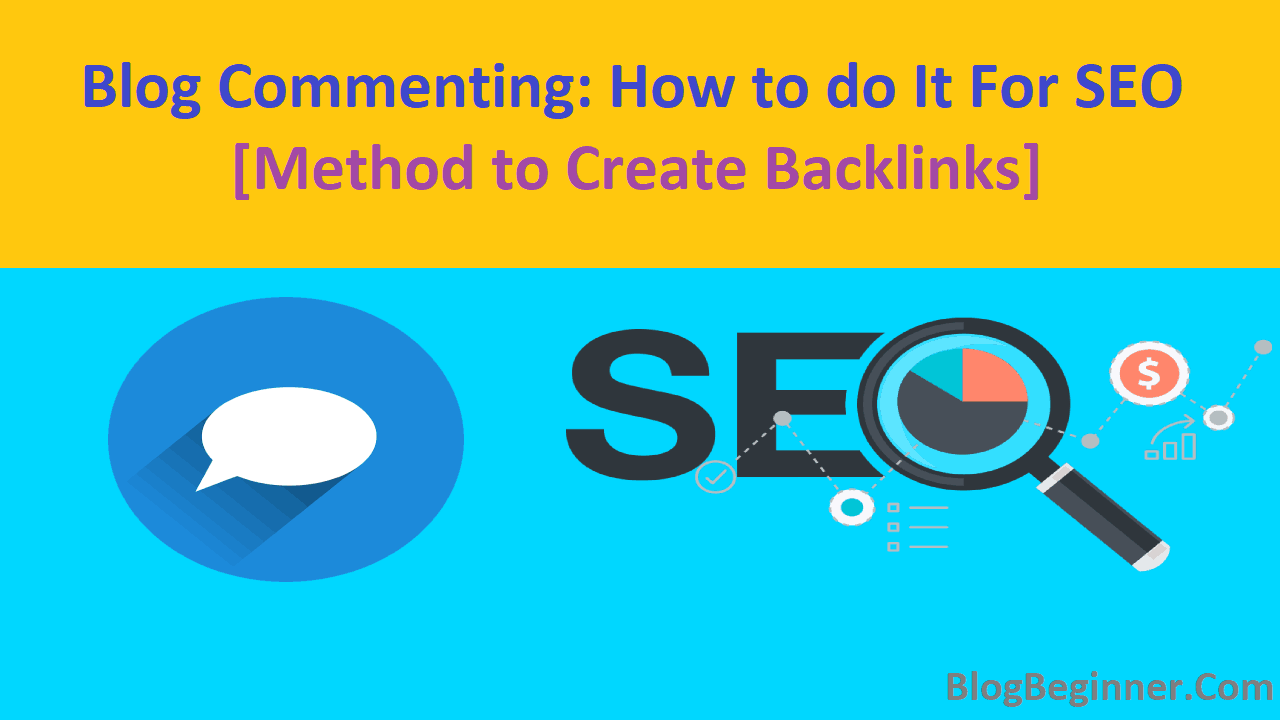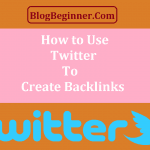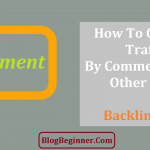If you’ve been blogging for a while now, you already know just how important it is to build backlinks to your website.
Backlinks not only help your website rank on search engines, but they also add credibility to your brand online.
While building backlinks and implementing an SEO strategy takes time, there is one technique that you can start doing NOW to build backlinks to your blog and generate traffic.
Enter blog commenting. Blog commenting is one of the easiest and most engaging ways to get some links to your website.
Easy, because all you have to do is comment on other peoples’ blogs (which you should be doing anyway), and engaging, because it gives you the chance to engage in friendly discussion or debate with other people.
So, how do you make the most out of your efforts?
This article, What is Blog Commenting Guide for Bloggers, will teach you how to create an effective blog commenting strategy.
Contents In Page
Find relevant blogs to comment on
To make your blog comments count, the first thing that you need to do is find relevant blogs to comment on. This means, you need to look for the following characteristics in your prospective blogs:
- An authority blog that is active and has been around for at least a year
- A reputable blog with information that is directed to your target demographic
- A hub for other bloggers that are in your niche
- Has a good Page Rank
Why is it important that your target blogs have all these? Because it’s these characteristics that will tell you if a blog is getting good traffic or if it can give you any link juice.
To find blogs you can leave comments on, all you have to do is use Google. Just type “do-follow blog commenting high PR” or “high PR (your niche) blog comment” to get an initial list of prospective blogs.
Feel free to use different variations of these 2 terms to see what your options are.
Make sure that your link is do-follow
Once you find some prospective blogs, the next thing that you need to do is check if these blogs allow do-follow links.
Do-follow links are links that give your website link juice. Link juice is highly prized because the more link juice your website gets, the higher that it will rank in the SERPs.
Although links are do-follow by default, many website owners choose to modify their links to no-follow because they don’t want trolls milking their link juice.
To know if a blog allows do-follow links, you need to install an SEO tool like SEO Quake on your browser.
These tools will instantly show you whether links on a website are do-follow or no-follow links.
More often than not, no-follow links will be crossed out so that you know immediately if a blog is worth leaving a comment on.
If you’re finding it difficult to find reputable blogs that allow do-follow links, you can try asking their owners for a favor.
But be sure to ask blog owners who you already have a relationship with because there are some who might try to make money out of this favor.
Comment on posts that matter
After finding a reputable authority blog that allows do-follow links, make sure that you comment on posts that matter.
If you want traffic, choose the most popular posts on the website. If you want engagement, leave comments on the most controversial posts on the blog.
Again, don’t forget to check the posts’ Page Rank if you want link juice.
When leaving blog comments on other people’s blogs, make it your goal to add value to post.
While “nice info” and “great share” may seem positive, they do nothing for the blog post or your brand.
Understand the elements of good blog commenting
For you to gain from blog commenting, crucial elements should guide you throughout the process.
A compelling comment on a blog contains different parts namely, an opening, compliment, main point, and the closing remark.
It is not a must that you include all the elements when commenting since the context should help you decide which elements are suitable.
If you are commenting on someone else’s blog, you can start a conversation by addressing them with their name. Greetings show courtesy especially when you are the first commenter on the blog.
After this, you can complement the author for their work.
This element may not apply when you are trying to reply to a certain comment or even adding a simple phrase to the existing conversation.
If you decide to complement the blogger, keep it brief by doing it in one sentence.
The next step is to add a valuable point in your comment. You can add on to the blogger’s knowledge or even criticize them constructively.
If you have a question, this is when you should raise it. Ensure that your point is clear so that other readers and the author can quickly respond.
Make your comment flawless and avoid grammatical errors. The closing part is also a vital component of blog commenting.
Including an excellent closing can quickly capture the attention of others.
Prioritize on a thorough reading
Most bloggers tend to analyse posts through headlines and introduction and leave comments without reading the entire content.
This approach is wrong because it can prevent you from getting backlinks from your comment.
Before you think of leaving your comments, take your time to go through a bloggers content and avoid skimming.
You should also go through other comments by readers to get a clear picture of their views. This can also help you build links with the rest of the commenters.
By analysing and understanding different opinions from others, it can help you grow as a blogger.
Include your name while commenting
Are you trying to promote your brand through blog commenting?
Make sure you include the name of your brand every time you leave a comment on someone else’s blog.
Alternatively, include your real name so that the blogger does not consider your comment spam and trash it.
Some bloggers try to use fancy names during commenting.
This cannot help you rank in search engines.
Look for opportunities
Sometimes, it is hard for a blogger to address the need of every reader and respond to all of the comments in every post.
There is a lot to do in blogging and the lack of time is a challenge for many writers.
When you come across unanswered comments on blogs related to your niche, you can use this chance to show your knowledge in the subject matter.
Try to answer some of the questions and give an in-depth explanation to support it.
This can help you build an image of being an expert in the field.
Readers can start looking for more information from your site increasing your chances of getting more followers.
Be part of the conversation
You may not concur with all the points that the author makes and making your opinion heard through blog commenting is important.
If you have a contradicting opinion, feel free to state it and give valid reasons to show why you think the author is wrong.
Remember to be civil so that you don’t look like you are attacking anyone.
If you agree with them but feel like they should have said more, feel free to include additional points in the comment section.
You should avoid being a passive commenter and be part of the conversation.
Know when to stop
A lot of bloggers wonder how long comments should be.
The answer to this depends on the subject in question. Sometimes, short comments are ideal while in others you need to extend the comment adding value to it so that readers can benefit from your content.
You should, however, avoid a one-sided conversation and try to include others.
Try to find a balance between quality and quantity. Do not repeat what already exists in the blog post or bore people with very long comments.
Have anything that you would like to add to Blog Commenting Guide for Bloggers?
Share your tips in the comments section below!


![How to Create a Lead Magnet with LeadPages [Method] How to Create a Lead Magnet with LeadPages](https://www.blogbeginner.com/wp-content/uploads/2018/12/How-to-Create-a-Lead-Magnet-with-LeadPages-150x150.png)


![How to Promote Old Blog Posts & Increase Traffic [Method] How to Promote Old Blog Posts &andIncrease Traffic](https://www.blogbeginner.com/wp-content/uploads/2018/12/How-to-Promote-Old-Blog-Posts-andIncrease-Traffic-150x150.png)


